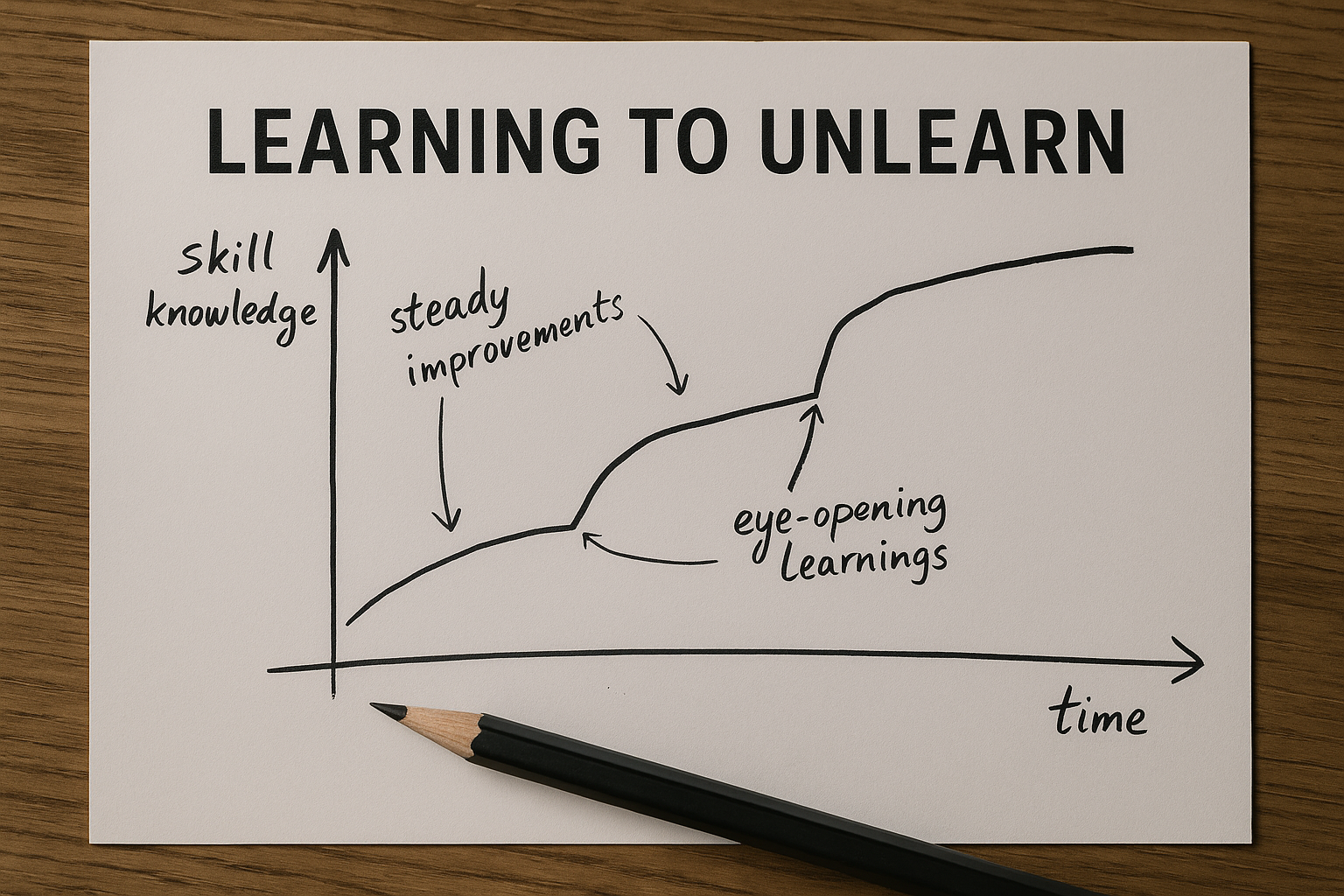
Have you ever had an eye-opening moment when you realized you’d been doing something wrong all along? I certainly have. And when it happens, it takes real effort to get rid of old habits. But every single time, the reward has been worth it.
To master anything, you need repetition. You must do the same motion over and over — like hitting a tennis ball a thousand times until it feels effortless. Yet, there’s another truth: if you keep doing the exact same thing, you’ll keep getting the same results. At first, these two ideas sound contradictory. But they’re actually complementary.
If I were to draw a learning curve, it should look something like the cover image.
By practicing the same thing over and over, your skill would improve in a steady, continuous way. But every so often, an eye-opening insight comes along — a new perspective or concept that instantly can lift you to a higher level. This produces a discrete jump on the learning curve. True mastery lies in balancing both: seeking out those conceptual shifts and then refining them until they become second nature.
Take road cycling, for example. You’re training hard, your fitness is improving, and progress feels steady — until you notice your friend, just as fit, riding faster. When you ask how, he shares a simple tip that changes everything:
“When pedaling, don’t just push down. Pull up, kick forward, and drive backward too — apply force through the full circle.”
Suddenly, it clicks. The path to getting faster isn’t just more training — it’s about changing how you pedal. To apply this new concept, you must first unlearn your old habits and teach your muscles to move differently.
This cycle — learning something new, unlearning what no longer works, and refining it through repetition — is at the core of mastery. Each discrete jump on the curve reflects a breakthrough that only comes from embracing change.
But it’s far from easy. Our brains and muscles love routine. Breaking “muscle memory” feels uncomfortable, even painful at times.
That’s why I’ve tried to develop a mindset of non-attachment to ideas. I remind myself: every concept I rely on today might one day be replaced by a better one.
Here are a few examples of habits I’ve had to unlearn:
- Searching for information: As a kid, I used textbooks and encyclopedias. As a teenager, Google. Now, I rely on LLMs like ChatGPT. Maybe one day, we’ll link our thoughts directly to the internet.
- Salsa dancing: I once thought every move had to match a count or beat. Then I learned that dance isn’t discrete — it’s a continuous flow.
- Ultra-trail running: I used to think it was all about running. But only when I understood that mindset, nutrition, patience and even resting are equally important did I truly improve.
So here’s my challenge for you: Think back to your own revelation moments. Then, look at what you do every day — and ask yourself: What could you unlearn to reach the next level?